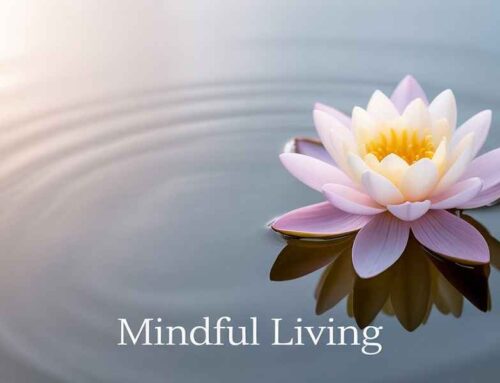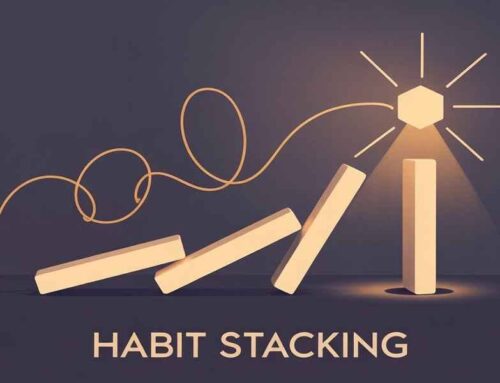
Lifelong Learning in a Rapidly Changing World
Are you feeling the whirlwind of change? The digital landscape morphs daily, industries pivot and the skills you thought were rock-solid yesterday? Well, they might be outdated tomorrow. You’re not alone. We’re all navigating this rapid evolution. But here’s the good news: you hold the key to not just surviving, but thriving. That key? Lifelong learning.
Let’s be real. How many times have you heard someone say, “I’m too old to learn something new,” or “I’m done with education”? It’s a common sentiment, but it’s a dangerous one. In today’s dynamic world, clinging to the idea that learning ends with formal education is like trying to navigate a complex maze with an outdated map. We need to continuously update our mental software.
Why is the importance of lifelong learning so crucial? Think about it. Technology, artificial intelligence and global interconnectedness are reshaping our jobs, our relationships and even our understanding of ourselves. Are you prepared to adapt? Do you feel you possess the resilience to navigate these uncharted territories?
Imagine a world where your curiosity fuels your career, where every challenge is an opportunity to expand your horizons. That’s the power of embracing a learning mindset. It’s not just about acquiring new technical skills; it’s about cultivating a hunger for knowledge, a desire to understand and a willingness to evolve.
The Ever-Evolving Landscape: Why Stagnation is Not an Option
Let’s break down the realities of our current world. Automation is changing the nature of work. Many routine tasks are being taken over by machines, forcing us to focus on skills that are uniquely human: creativity, critical thinking, problem-solving and emotional intelligence. To stay relevant, we must constantly expand our skill sets and knowledge base.
Furthermore, consider the pace of innovation. What was cutting-edge technology a few years ago might be obsolete today. This rapid advancement demands a proactive approach to learning. We must be willing to learn new software, understand new methodologies and adapt to new ways of working.
More Than Just Job Skills: The Personal Benefits
The benefits of lifelong learning extend far beyond the professional realm. It enriches our lives in countless ways. Engaging in continuous self-education boosts our cognitive function, keeps our minds sharp and fosters a sense of purpose. It can lead to increased self-confidence, improved mental health and a greater sense of fulfillment.
Think about the joy of discovering a new passion, the satisfaction of mastering a challenging skill or the sense of connection that comes from engaging in meaningful conversations with people from diverse backgrounds. These experiences are all part of the journey of ongoing intellectual development.
How Do You Cultivate a Lifelong Learning Mindset?
It’s not about going back to formal schooling (Although that’s an option!). It’s about integrating learning into your daily life. Here are some practical steps:
- Embrace Curiosity: Ask questions, explore new topics and never stop wondering. Make it a habit to seek out new information and perspectives.
- Develop a Growth Mindset: Believe that your abilities can be developed through dedication and hard work. View challenges as opportunities for growth.
- Seek Diverse Learning Opportunities: Read books, listen to podcasts, watch documentaries, attend workshops, take online courses or join a community of learners.
- Connect with Others: Engage in conversations with people from different backgrounds and professions. Learn from their experiences and perspectives.
- Reflect on Your Learning: Take time to reflect on what you’ve learned and how you can apply it to your life. Journaling, meditation or simply taking a walk can help you process your thoughts and insights.
- Set Learning Goals: Identify areas where you want to grow and set specific, measurable, achievable, relevant and time-bound (SMART) goals.
- Embrace Technology: Utilize the vast resources available online, including educational platforms, online courses and digital libraries.
- Find Mentors: Seek out individuals who can guide and support your learning journey.
- Practice Active Learning: Don’t just passively consume information. Engage with the material by taking notes, asking questions and applying what you’ve learned.
- Be Patient and Persistent: Learning takes time and effort. Don’t get discouraged if you don’t see results immediately.
The Power of Self-Directed Education
In a world filled with information, the ability to learn independently is a superpower. Self-directed education empowers you to take control of your learning journey and pursue your passions. It allows you to tailor your learning to your specific needs and interests.
Think about the freedom of choosing what you want to learn and how you want to learn it. You can explore topics that fascinate you, develop skills that are relevant to your career and expand your knowledge in areas that contribute to your personal growth.
Addressing the Challenges
Of course, embracing lifelong learning isn’t always easy. We face challenges like time constraints, financial limitations and the fear of failure. However, these challenges can be overcome with careful planning, resourcefulness and a positive attitude.
- Time Management: Prioritize learning and schedule dedicated time for it. Even small increments of time can make a significant difference.
- Financial Resources: Explore free or low-cost learning opportunities, such as online courses, public libraries and community workshops.
- Fear of Failure: Remember that mistakes are part of the learning process. Don’t be afraid to try new things and learn from your experiences.
Quotes to Inspire Your Learning Journey
- “Live as if you were to die tomorrow. Learn as if you were to live forever.” – Mahatma Gandhi
- “Anyone who stops learning is old, whether at twenty or eighty. Anyone who keeps learning stays young.” – Henry Ford
- “Education is not the filling of a pail, but the lighting of a fire.” – William Butler Yeats
- “The future belongs to those who learn more skills and combine them in creative ways.” – Robert Greene
- “Change is the end result of all true learning.” – Leo Buscaglia
The Future of Work and the Importance of Continuous Self-Education
The future of work will be characterized by adaptability, creativity and a willingness to embrace change. Those who are committed to continuous self-education will be best positioned to thrive in this dynamic environment.
By developing adaptable learning skills, you will be able to navigate career transitions, embrace new technologies and contribute to the ever-evolving workplace.
In Conclusion: Embrace the Journey
Lifelong learning isn’t just a buzzword; it’s a necessity. It’s about cultivating a mindset of continuous growth and embracing the opportunities that come with change. By developing adaptable learning skills and embracing continuous self-education, you can unlock your full potential and create a fulfilling life.
We are all students in the school of life. Let us not shy away from learning, but embrace it with open arms and inquisitive minds. The world is a classroom and every moment holds a lesson.
Call to Action
What will you learn today? Take the first step on your lifelong learning journey. Explore a new topic, learn a new skill or connect with someone who can inspire you. The possibilities are endless. Embrace the challenge and unlock your potential. Start now.
“The capacity to learn is a gift; the ability to learn is a skill; the willingness to learn is a choice.” – Brian Herbert
Frequently Asked Questions: The Importance of Lifelong Learning
Q: What exactly is lifelong learning?
A: Lifelong learning refers to the continuous, voluntary and self-motivated pursuit of knowledge for personal or professional reasons. It’s not limited to formal education; it encompasses all forms of learning, including self-study, online courses, workshops, mentorship and experiential learning. It’s about cultivating a mindset of curiosity and a commitment to ongoing growth throughout your entire life.
Q: Why is lifelong learning so important in today’s world?
A: Our world is undergoing rapid technological and societal changes. Automation, artificial intelligence and globalization are transforming the job market, requiring us to adapt and acquire new skills continuously. Lifelong learning allows us to stay relevant, enhance our employability and navigate these changes effectively. Moreover, it fosters personal growth, improves cognitive function and promotes a sense of purpose and fulfillment.
Q: I’m already working full-time. How can I possibly find time for lifelong learning?
A: Time management is crucial. Start by prioritizing learning and scheduling dedicated time for it, even if it’s just 30 minutes a day. Integrate learning into your daily routine by listening to podcasts during your commute, reading during lunch breaks or taking online courses in the evenings. Utilize short bursts of time to learn micro-skills or explore new topics. Remember, consistency is key.
Q: I’m worried about the cost of continuing education. Are there affordable options?
A: Absolutely! There are many affordable and even free resources available. Explore online platforms like Coursera or edX , which offer a wide range of courses. Utilize public libraries, attend free workshops or webinars and join online communities of learners. Seek out mentorship from experienced professionals. Many organizations and institutions also offer scholarships or grants for continuing education.
Q: I feel overwhelmed by the vast amount of information available. Where do I even begin?
A: Start by identifying your interests and goals. What skills do you want to develop? What knowledge do you want to acquire? Focus on areas that are relevant to your career or personal passions. Break down your learning into smaller, manageable steps. Utilize online learning platforms or learning management systems to organize your learning journey. Seek out curated resources and expert recommendations to streamline your learning.
Q: I’m afraid of failing or not being good enough. How can I overcome this fear?
A: Embrace a growth mindset. Understand that mistakes are a natural part of the learning process. View challenges as opportunities for growth and development. Focus on progress rather than perfection. Celebrate your achievements, no matter how small. Seek out support from mentors, peers or online communities. Remember, everyone starts as a beginner.
Q: What are some practical ways to cultivate a lifelong learning mindset?
A: Cultivate curiosity by asking questions and exploring new topics. Develop a growth mindset by believing in your ability to learn and improve. Seek out diverse learning opportunities, such as reading books, attending workshops or taking online courses. Connect with others and learn from their experiences. Reflect on your learning and apply what you’ve learned to your life. Set learning goals and track your progress. Utilize technology to access information and resources. Practice active learning by engaging with the material.
Q: How does lifelong learning benefit my career?
A: In today’s dynamic job market, lifelong learning is essential for career advancement and job security. It allows you to acquire new skills, adapt to changing industry demands and stay competitive. It enhances your employability, increases your earning potential and opens up new career opportunities. It also fosters creativity, problem-solving skills and critical thinking, which are highly valued by employers.
Q: Can lifelong learning improve my personal life?
A: Absolutely! Lifelong learning can enrich your personal life in countless ways. It can boost your cognitive function, improve your mental health and enhance your overall well-being. It can lead to increased self-confidence, a greater sense of purpose and more fulfilling relationships. It can also open up new hobbies, interests and passions.
Q: What are some examples of lifelong learning activities?
A: The possibilities are endless! Examples include:
- Taking online courses or attending workshops
- Reading books, articles and blogs
- Listening to podcasts and audiobooks
- Learning a new language or musical instrument
- Volunteering or mentoring
- Joining a book club or discussion group
- Traveling and exploring new cultures
- Pursuing a hobby or passion
- Attending conferences or lectures
- Engaging in self-reflection and journaling
Q: How can I stay motivated on my lifelong learning journey?
A: Set realistic goals and track your progress. Celebrate your achievements, no matter how small. Find a learning community or support group. Connect with mentors or peers who can inspire and motivate you. Make learning enjoyable by incorporating your interests and passions. Remember your “Why” – the reasons that drive your learning journey. Regularly reflect on the benefits of lifelong learning and how it’s positively impacting your life.
Q: What is the relationship between lifelong learning and adaptability?
A: Lifelong learning builds adaptability. When you consistently learn and grow, you become more flexible and open to change. The more knowledge and skills you have, the better you can navigate new situations and challenges. In a rapidly evolving world, adaptability is a crucial trait and lifelong learning is its primary driver.














